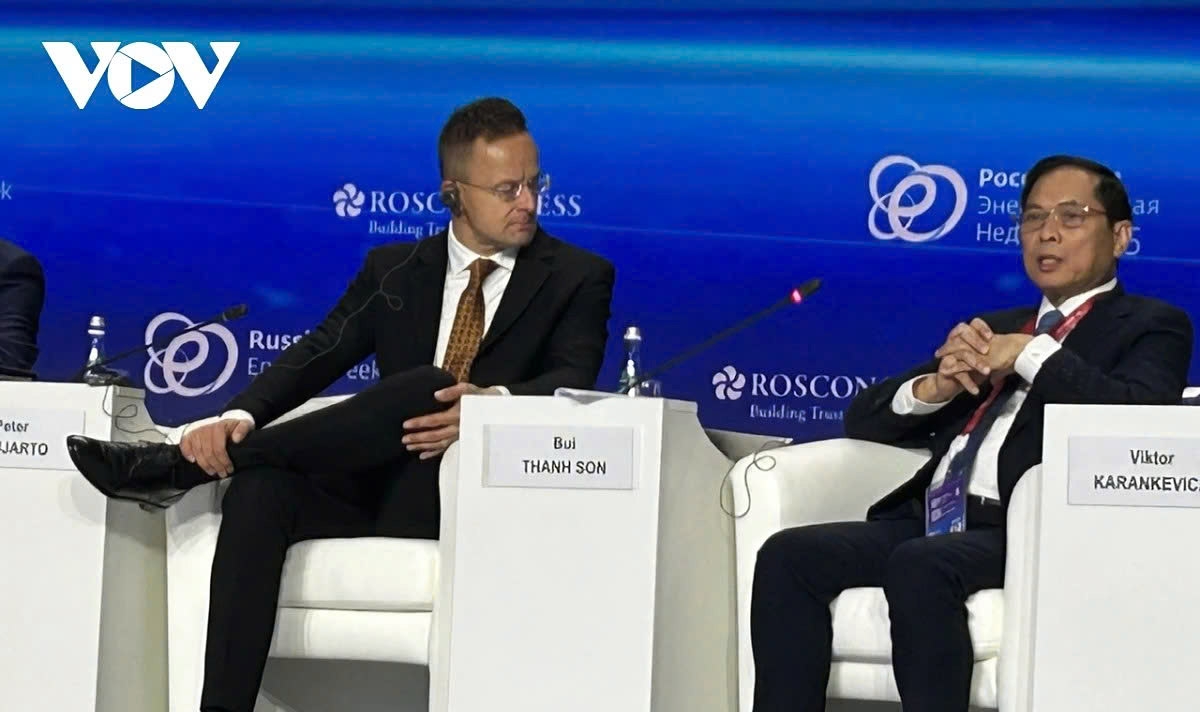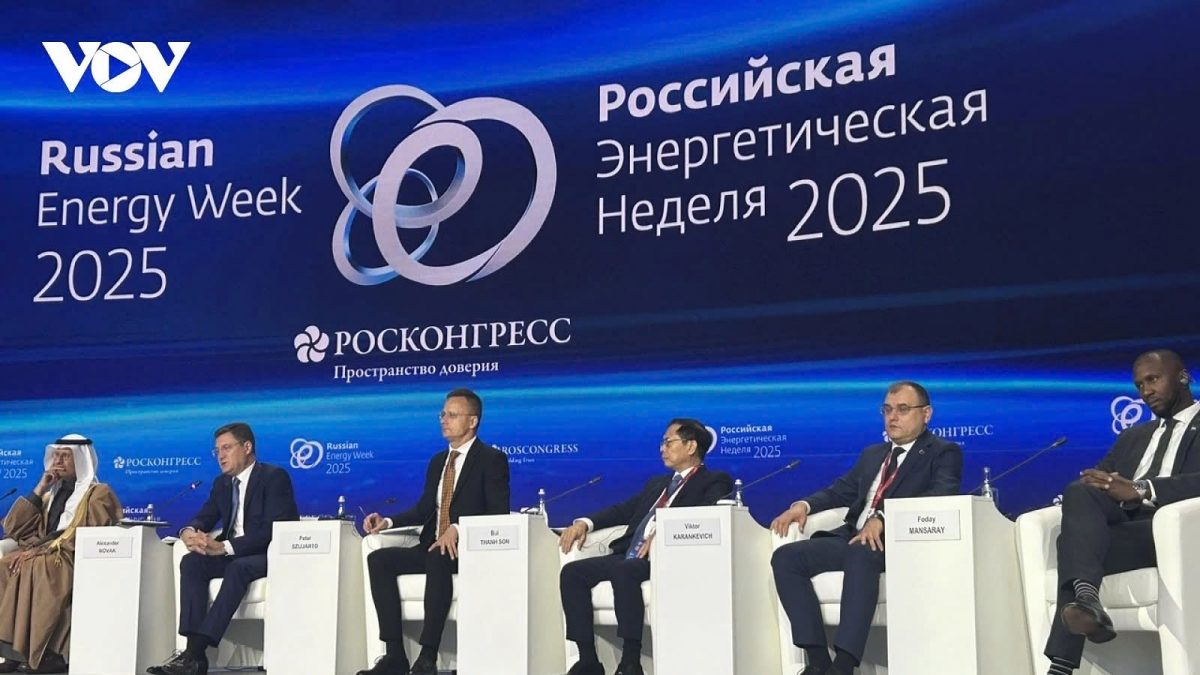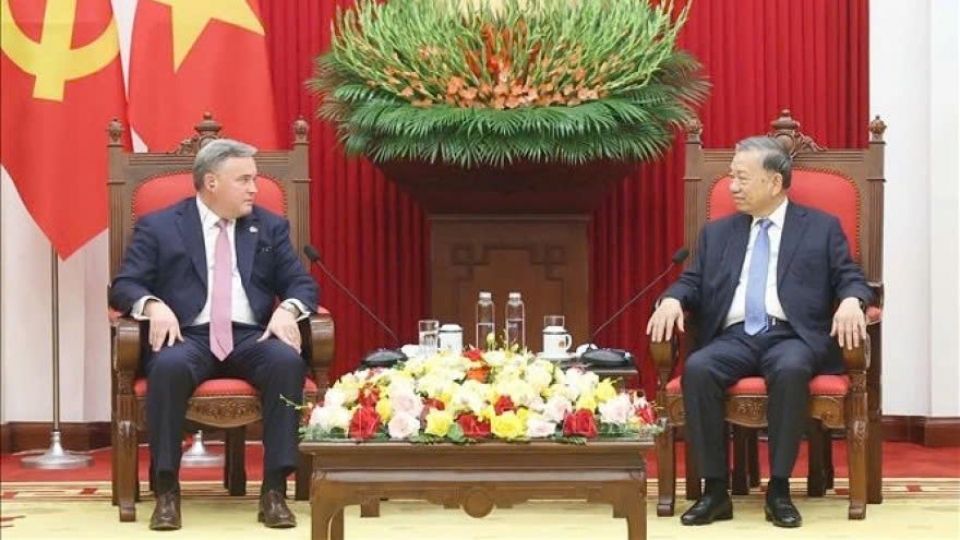Vietnam calls for international energy cooperation amidst global volatility
VOV.VN - Speaking at the 8th Russian Energy Week forum in Moscow on October 15, Vietnamese Deputy PM Bui Thanh Son emphasised the importance of strengthening international cooperation in the energy sector in response to the current complex and volatile geopolitical landscape and the global energy transition.

Energy is not just a resource or fuel, it is the foundation of peace, development, and equity. It is the energy of the future—energy for humanity, stressed Deputy Prime Minister Bui Thanh Son
He affirmed that energy plays a vital role in ensuring national energy security, promoting sustainable socio-economic development, protecting the environment, and improving people’s quality of life.
In the face of the growing challenges posed by climate change and the depletion of natural resources, the Deputy Prime Minister called on the international community to join forces in advancing a sustainable energy transition. He underscored four key priorities for the global energy sector, namely enhancing the efficiency of resource use, fostering research and the application of new technologies, cutting emissions across the extraction, processing, and consumption of traditional energy sources, and accelerating the development of new, clean, green, and high-efficiency energy alternatives.
Sharing Vietnam’s national energy development strategy, the Deputy Prime Minister stated that Vietnam is committed to ensuring strong national energy security by 2030, with a vision to 2045. The country aims to provide stable, high-quality energy, reduce greenhouse gas emissions, support sustainable economic and social development, protect the ecological environment, and maintain national defence and security.
In response to questions from international delegates about Vietnam’s liquefied natural gas (LNG) development plans, the Deputy Prime Minister said that Vietnam is actively investing in and synchronising the development of LNG terminal infrastructure alongside gas-fired power plant projects.
Between 10 to 14 LNG terminal clusters are planned across different regions of the country, with the goal of putting these plants into commercial operation between 2028 and 2030.
Vietnam welcomes international investors and businesses, including those from Russia, to cooperate in developing LNG infrastructure, sharing experience, and enhancing operational capacity to help ensure sustainable energy security, he stated.

Delegates widely agreed that the global energy sector is facing major challenges due to complex geopolitical developments and heightened tensions in various regions, which have disrupted supply chains and caused market volatility. Despite these disruptions, the world’s energy demand is projected to continue rising, as the global population is expected to reach 10 billion by 2050 and the global economy keeps expanding.
While the push for renewable energy is gaining momentum, traditional energy sources such as oil and gas are still expected to play a critical role. Against this backdrop, delegates emphasised the urgent need to diversify supply sources and markets, and to ensure sustainability, stability, and price competitiveness in order to safeguard both national and global interests in the face of growing protectionism and trade restrictions.
The Russian Energy Week is an annual international forum held since 2016 under the auspices of the Russian Government. It serves as a platform for discussing global trends in the fuel and energy sector, identifying economic, technological, and international cooperation solutions to address challenges and risks, with the goal of promoting efficient and sustainable development.
The October 15-17 forum this year has attracted nearly 5,000 delegates from 80 countries and territories.





